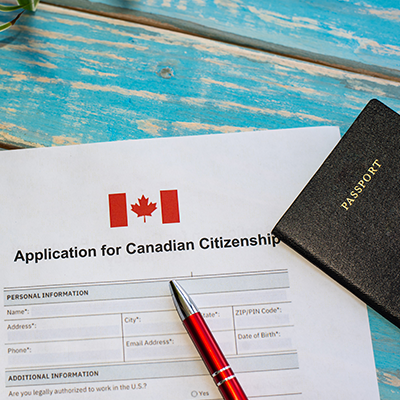For years, there has been much controversy surrounding Canada’s Temporary Foreign Worker (TFW) Program.
On one hand, it’s seen as a boon for business. Running since 1973, the program allows Canadian employers to hire low-wage workers from abroad to fill labour gaps.
Post-pandemic, when job vacancies shot up to nearly one million (also known as the Great Resignation), industry groups lobbied for access to more TFWs to address staffing shortages.1 The federal government responded, in April of 2022, by temporarily amending the TFW Program. Now, under the new rules, employers can hire more migrant workers. Employers can hire up to 20% of their workforce through the program, which often pays migrant workers low wages. That’s double the previous cap of 10% and other industries can hire even more, up to 30% of their workforce.
On March 27, 2023, the federal government announced the extension of the temporary measures introduced during the pandemic under the TFW Program. The extended measures include:
- Allowing employers in seven sectors with demonstrated labour shortages (such as accommodation and food services, construction, and food manufacturing) to hire up to 30%of their workforce through the TFWP for low-wage job positions
- Keeping the Labour Market Impact Assessment (LMIA) validity period at up to 18 months
- Maintaining the maximum duration of employment for low-wage positions at up to two years
(These measures will remain in place until October 30, 2023.)
But the program remains deeply flawed. Without permanent status, the threat of deportation often keeps TFWs hostage to their employer’s demands, leaving these workers vulnerable to exploitation and abuse.
The expansion of the TFW Program has also meant more skilled newcomers are subject to mistreatment and subpar working conditions. In 2022, Quebec employers hired 38,500 temporary foreign workers compared with 23,300 in 2019. During that same period, workplace accidents among migrant workers skyrocketed with 154 reports, in 2019, to 362, in 2022.2
Immigration, Refugees and Citizenship Canada (IRCC) and Employment and Social Development Canada (ESDC) recently updated the Immigration and Refugee Protection Regulations concerning TFWs, mandating employers to provide all TFWs with information about their rights in Canada. It also prohibits punishment by employers against workers who bring up complaints.
But the rule is inconsistently enforced, and a significant number of migrant workers employed through the program remain fearful that complaints against an employer put their work permit and job in jeopardy. Migrant-worker advocates are calling for a reform of the program.
HR Best Practices
How should HR professionals respond? Below are some best practices HR, working in partnership with their employers, can take before employing newcomers to Canada. Please note that this is not a comprehensive list and other actions may need to be taken to remain compliant.
- Understand your employer’s legal obligations. On March 20, 2023, the Ontario government introduced further proposed amendments to the Working for Workers Act, 2023, which would, if passed, increase protections for workers including TFWs. Under the new laws, businesses and people who are convicted of withholding a foreign national’s passport or work permit could face steeper penalties, with a maximum of $200,000 fines for every worker whose rights are violated. Ontario is also proposing changes to the Occupational Health and Safety Act (“OHSA”), which would increase the maximum fine for corporations convicted of an offence under the OHSA from $1.5 million to $2 million.
Beyond that, employers have a duty to provide temporary and migrant workers with a workplace that is free of abuse.
- Prepare a Corporate Immigration Policy. Develop a clearly defined policy that outlines the employee’s responsibilities relating to their status, the employer’s support and willingness to provide for permanent residence applications and other related requests, information on work permit renewals, etc. This policy is critical to develop as it allows the employer to communicate a fair and consistent message to all migrant workers from the start of their employment.
- Keep migrant worker records. IRCC and Service Canada have the right to conduct Employer Compliance Reviews and Inspections on employers hiring migrant workers. As such, it’s important to keep a detailed employment file for each migrant worker to demonstrate that your company was compliant with all obligations. These files can include but are not limited to copies of contracts, work permits held during the employment period and pay stubs. Reviews or inspections can be conducted for up to 6 years after a worker was issued a work permit so files should be kept for this period of time.
- Follow HRPA’s professional guidance. HRPA regulates the HR profession in the public interest. That means HR regulation helps to protect people and employees which includes migrant workers. As a regulated HR professional, you have a duty and obligation to adhere to the highest professional standards and practice in HR in a way that minimizes harm to the public. Refer to HRPA’s professional guidance for best HR practices including how to properly support all workers in the workplace.
Conducting Workplace Investigations
Addressing Racism and Racial Discrimination in the Workplace
Fostering Mental Health in the Workplace
- Canada’s Temporary Foreign Worker program is ballooning to fill the labour gap, but workers say they’re abused and poorly paid. Is that the solution we want?
- Ottawa loosens restrictions on temporary foreign workers to help employers with labour shortages
- HRPA’s Professional Guidance
- Ontario Introducing Highest Fines in Canada for Withholding Worker Passports
- Expanding temporary foreign worker program just means ‘more exploitable workers’: advocate
- HR Best Practices When Employing Foreign Workers
1. Statistics Canada: Job vacancies, second quarter 2022
2. Quebec seeing rise in injured temporary foreign workers hired to fill labour gaps
